Working overseas has always been a cornerstone of the Global Human Development (GHD) program experience at the Walsh School of Foreign Service (SFS). In fact, until the advent of the COVID-19 pandemic, students in the program were required to complete an international internship working on real-world development issues within local communities.
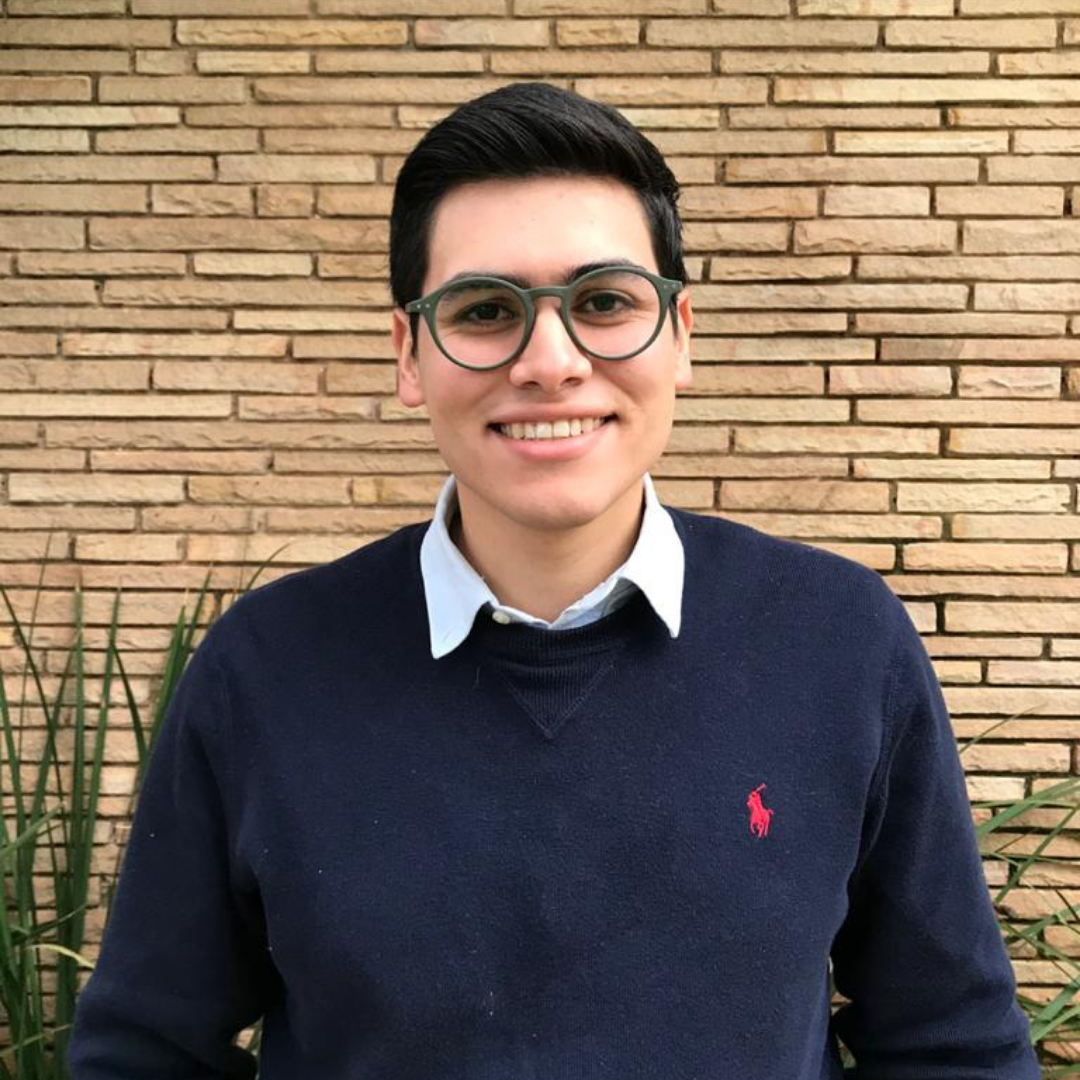
So, when the pandemic threatened to disrupt this opportunity to learn from development partners, GHD students and their faculty mentors mobilized to leverage the virtual tools they were using in class to connect with the world instead.
“My first year at GHD started at the height of the pandemic, but my experience was as fulfilling and academically rich as it would be during in-person learning,” says Kamilla Zakirova (GHD’22), who was one of a number of students to capitalize on GHD’s agile use of technology. Through the program’s online workshops, clinics and seminars, she was able to connect with experts around the world who might otherwise not have been able to work with the Washington-based students.
Now, as international borders reopen, the program is combining the accessibility of Zoom webinars with the relationship-building opportunities of in-person gatherings to create a series of virtual and on-campus events that allow students to learn from those at the cutting edge of their field.
“As a practitioner-based program, everything we do at GHD is aimed at providing our students with the skills and experiences they need to become effective leaders in development,” says Dr. Steven Radelet, director of the GHD program. “These co-curricular activities are wonderful complements to our coursework, internships and capstone projects, and provide additional meaningful experiences to prepare students for their careers.”
Exploring New Ideas
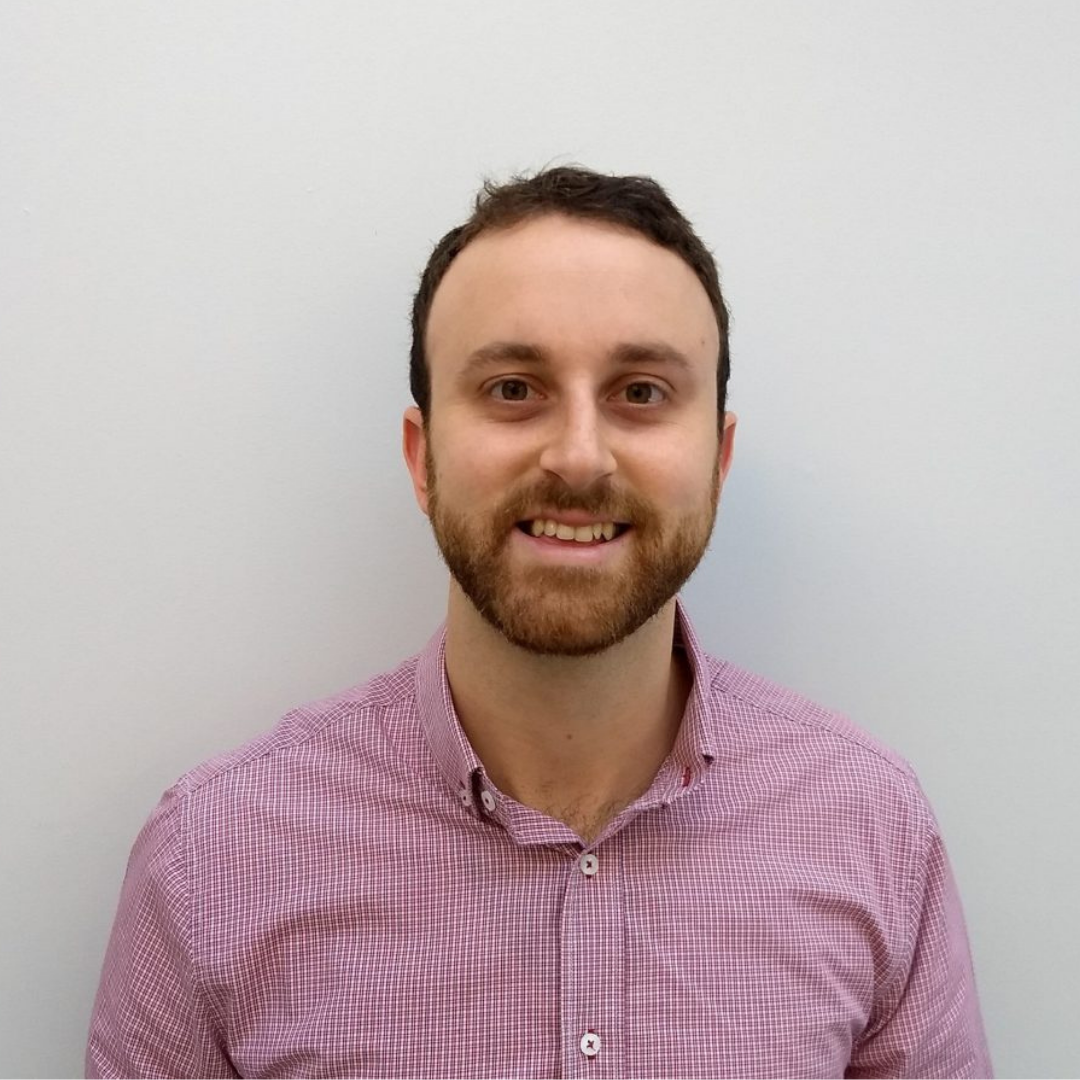
Juan Fernando Gomez Lopez (GHD’23) traces his interest in development back to his experience growing up in Bogotá, Colombia and Tegucigalpa, Honduras.
“Poverty is misunderstood,” he says. “Despite Colombian stable economic growth, fear for armed group assaults was a constant. While powerful corporations celebrated neoliberal policies, lack of social cohesion was evident.”
In Honduras, the gulf between rich and poor was painfully apparent. “Wealthy families would build their own gated, poverty-free communities. I quickly realized that poverty is more than a monetary issue that must be addressed in collaboration across sectors,” he says.
Gomez Lopez was interested in exploring how initiatives outside of conventional development models, that often prioritize government and multilateral aid, can help achieve poverty reduction goals. Last semester, the first year graduate student organized and moderated one of GHD’s first in-person events: a conversation with Martin Burt, a Paraguayan entrepreneur and founder of microfinance organization Fundación Paraguaya. The discussion explored Burt’s book, Who Owns Poverty?, which promotes poor families as agents who can successfully eradicate poverty.
A former employee of Fundación Paraguaya, Gomez Lopez was excited to host his former boss, but it was the commentary of his GHD peers that made the event particularly engaging, he says.
“Although Martin inspired us with the bold ideas that made him write the book, the dialogue he sparked made the session insightful,” he recalls. “GHD students from different countries like the Philippines, India and Afghanistan shared unique perspectives about what poverty means in their countries.”
Working Across Sectors
Close-knit cohorts are a hallmark of GHD and the opportunity to work closely with peers is one of the main benefits for students in the program. “I chose GHD primarily because it felt both exceptionally collaborative and practitioner-oriented,” Matthew Martin (GHD’22) affirms.
The synergy Martin felt with his classmates soon inspired him to work with fellow students to create an event series that enables participants to learn more about how different areas of development can work together.
“GHD emphasizes both a holistic approach to development challenges, but also recognizes the importance of having a specialized area of interest,” Martin explains. “This series assists in finding that balance and trying to address the danger of becoming isolated in specific sector ‘silos,’ which can be a problem for development practitioners.”
Over the last academic year, the series has hosted conversations on education, climate and social protection.
“It has been particularly gratifying to see just how generous so many development practitioners are with their limited time,” Martin says. “It’s great to be able to just take an hour to be fully immersed in a sector of development that is perhaps totally distinct from what I usually focus on.”
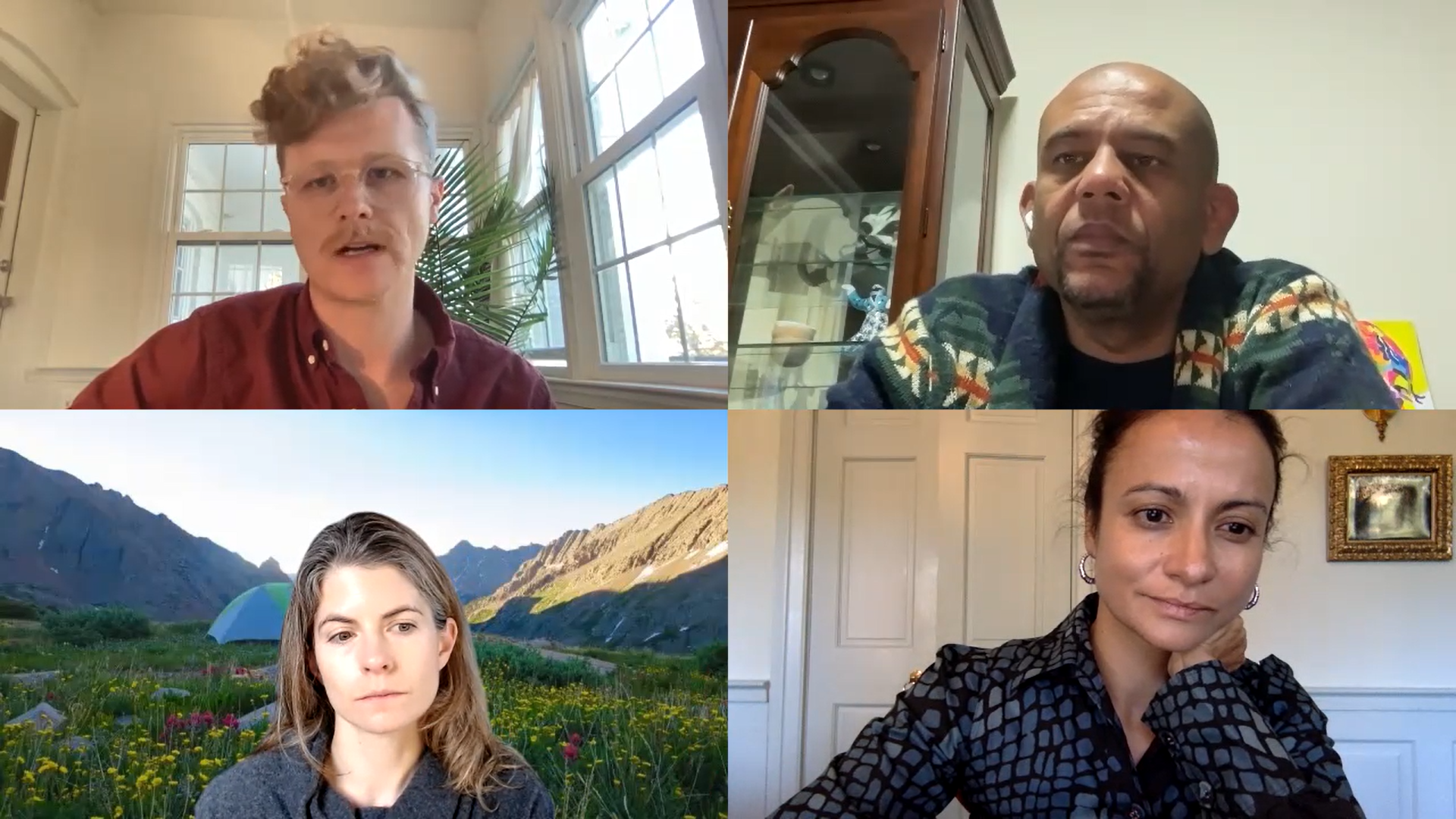
Learning from “Invaluable” Perspectives
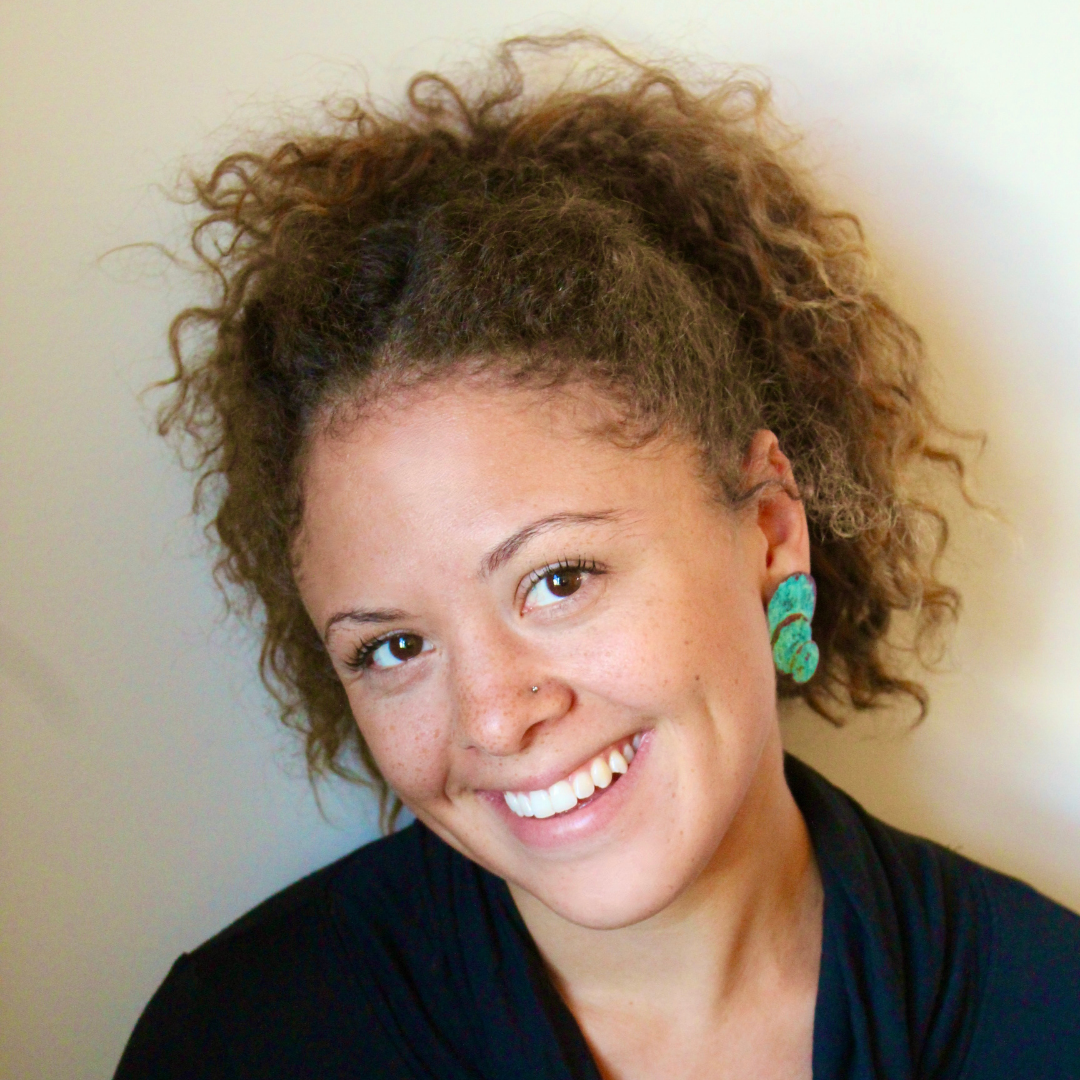
For Emily Brown (GHD’22), the program’s commitment to experiential learning was her primary reason for applying to study at SFS. “I knew GHD would provide an opportunity to learn the skills necessary to work in the field of development, and not solely learn theory,” she says.
One of the ways Brown gained this practical experience was to contribute to the program’s Making Finance Work for Africa (MFW4A) partnership. Through the initiative, Brown and other GHD students worked with MFW4A and the African Development Bank to bolster African financial sectors. Brown conducted research on finance in Rwanda and Burkina Faso, and collaborated on the work with Burkinabè PhD students through virtual workshops. “It was fabulous to be able to connect over Zoom and discuss the project together, especially since they had insights that were invaluable to the country profile,” she says.
“Virtual learning has undoubtedly been difficult, but it has also provided incredible opportunities to connect with people all over the world,” she continues. “My professors have been able to bring in speakers that would have otherwise been unable to participate in our courses.”
Though the second-year student has substantial development experience under her belt — Brown joined GHD after a three-year stint with the Peace Corps, first in Burkina Faso and then Uganda — the MFW4A initiative enabled her to pursue new avenues in the field. She says, “I have learned so much about finance on the African continent through the experience because finance is a sector that I had little exposure to prior to my graduate school experience.”
“I Want to Meaningfully Contribute”

For other students, GHD programming has allowed them to take deeper dives into existing interests.
Kamilla Zakirova (GHD’22) focuses on development reforms in Uzbekistan, her home country. In October, she hosted an event with Pratish Halady, a senior advisor to the Asian Development Bank (ADB) who leads the bank’s public-private partnership strategy in Uzbekistan.
“Our discussion focused on the economic progress that Uzbekistan has achieved in the last several years,” Zakirova says. “This event reassured me that Uzbekistan is moving in the right direction.”
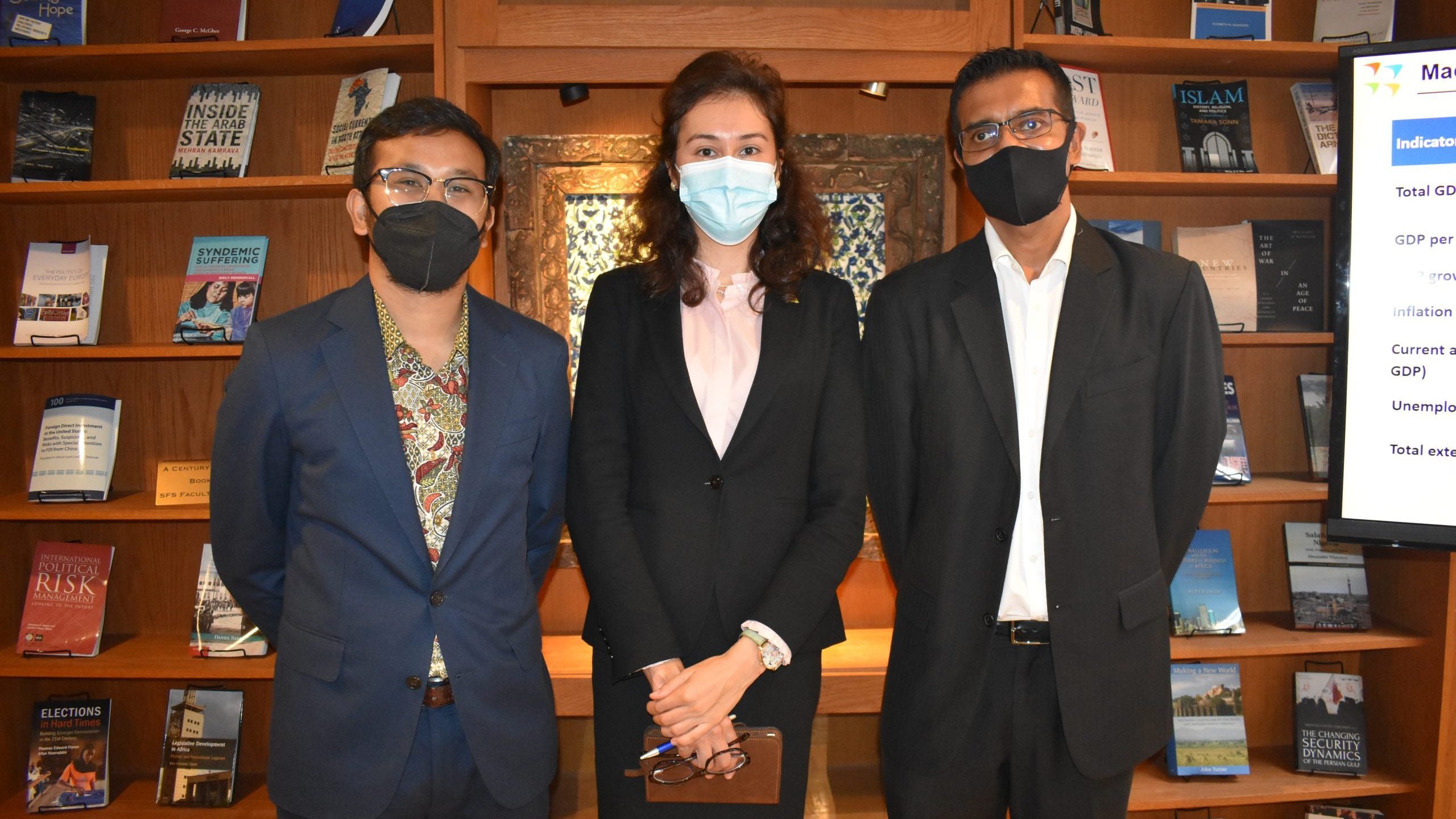
Zakirova was raised by her grandfather, a Soviet biochemist who worked on Uzbekistan’s agricultural development. “I grew up with stories about his childhood and upheaval, which described the history of our region and its challenges. Two words were always part of his stories: poverty and hunger,” she says.
Zakirova is a co-founder of the American Uzbekistan Association and she ultimately wants to work in public service in her home country, where the international student says she will use her SFS education to “meaningfully contribute” to improving the lives of her fellow citizens.
“I decided to dedicate myself to helping my country solve these issues and improve the livelihoods of people,” she explains. “I joined Georgetown University because I always had the purpose and sense of responsibility for helping the most marginalized and impoverished.”
Leading By Listening
Pierina Anton Lopez (GHD’23) is similarly motivated by a commitment to serve those who lack power within global systems. A first-generation immigrant Latina who grew up in a low-income household, Anton Lopez is keenly aware of the lack of diversity in the development field.
“Diversity is so important in the international development sector, where notions of power and privilege are embedded in everything from program design and implementation to the allocation of aid funds,” she explains.
Determined to work to make the field more inclusive of people from a variety of backgrounds, Anton Lopez helped co-lead Diversity in Development (DiD), a series of panels, workshops and events that aims to showcase the contributions of underrepresented groups in development, including people of color, women, young people and those identifying as LGBTQ+.
The representation DiD strives for has personal importance for Anton Lopez. During her undergraduate degree, she faced numerous barriers to acquiring the professional and academic experiences that many recruiters at elite institutions, including Georgetown, look for in a candidate. Even with a tuition scholarship, it was difficult to complete unpaid internships that are the norm in the field of development.
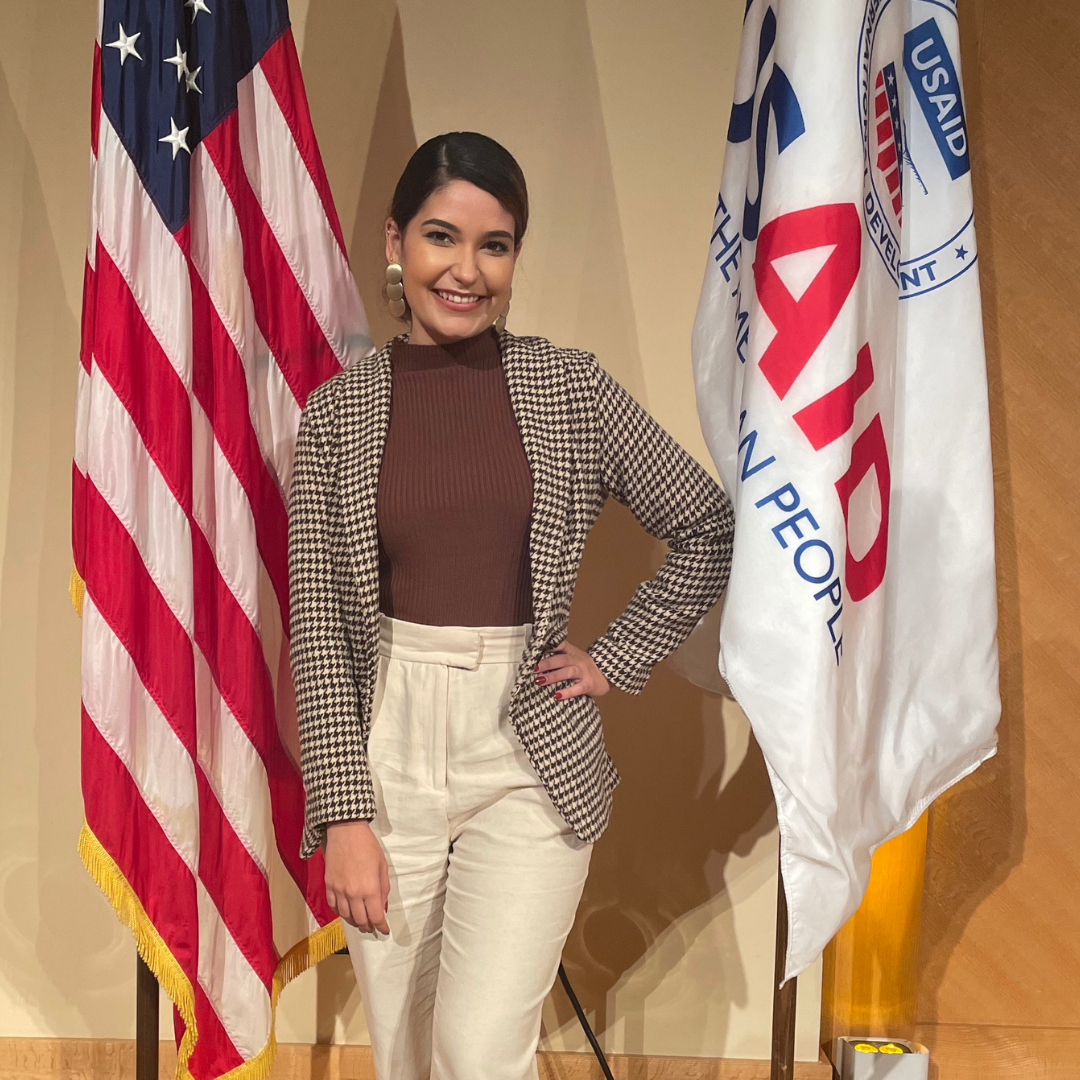
“Even after searching high and low for all these resources to gain reputable experience, I still had trouble feeling like I belonged when I arrived at Georgetown,” Anton Lopez recalls. “Joining DiD was a way for me to picture myself in this field and find a community of like-minded individuals committed to DEI in the development field.”
Anton Lopez’s experience is testament to the necessity of collaboration and dialogue across borders and experiences. Ultimately, students at GHD hope that the global connections they have built during their time in the program will help them become better practitioners to improve the field they are passionate about.
“The approach to development has been based on what international development professionals believe people need, and we’re so convinced that we’re right that we become blind to opportunities for improvement,” says Gomez Lopez. “First, we should listen more to people, learn from their struggles, understand their strengths and acknowledge their dreams.”